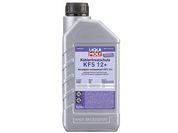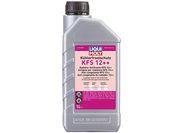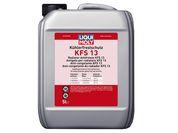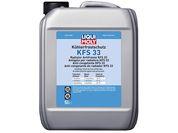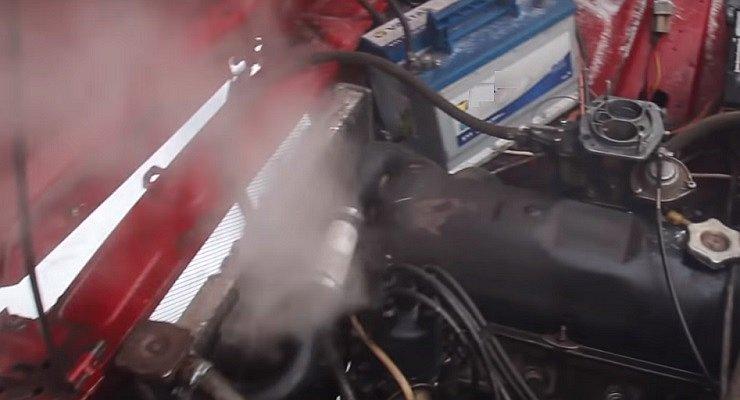
Why some antifreezes do not cool, but overheat the car engine
As a rule, almost all car owners, when servicing their car, pay serious attention to the selection of consumables - filters, brake pads, engine oil and windshield washer fluid. However, at the same time, they often forget about antifreeze, but in vain ...
Meanwhile, if we evaluate the effect of automotive technical fluids on the durability of the power unit, then, according to experts from car service centers, it is from the coolant (coolant) that the reliability of any internal combustion engine largely depends.
According to generalized service statistics, the main cause of more than a third of all serious malfunctions detected in motors during repairs are defects in their cooling system. Moreover, according to experts, in the vast majority they are provoked either by the wrong choice of coolant for a specific modification of the power unit, or by ignoring the requirements for monitoring its parameters and timely replacement.
This state of affairs gives a serious reason for reflection, especially considering the difficult production and economic conditions that are developing today in the modern market of auto components and consumables.
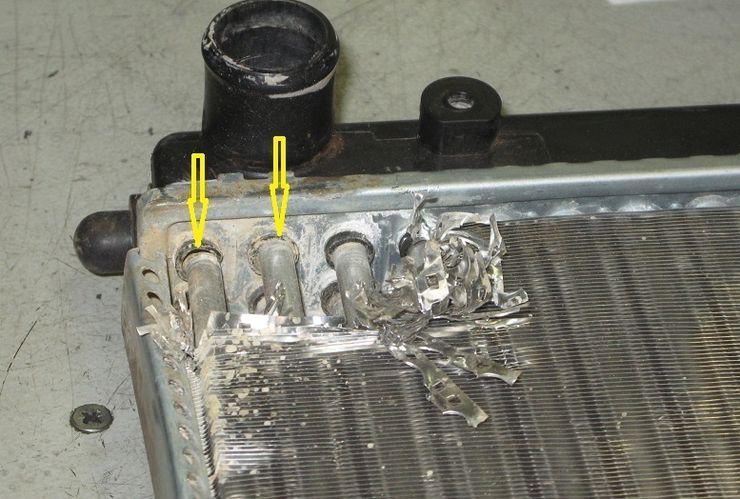
So, for example, facts have already been repeatedly revealed when individual manufacturers of automotive coolants, trying to save on raw materials, instead of expensive glycol, which is necessary for the preparation of high-quality antifreeze, use cheaper methyl alcohol. But the latter causes severe corrosion, destroying the metal of radiators (see photo above).
In addition, it evaporates faster, which during operation of the machine leads to a violation of the thermal regime, overheating and a decrease in engine life, as well as an increase in the “load” on engine oil. Moreover: methanol can lead to cavitation that destroys the pump impeller and the surface of the channels of the cooling system.
However, the effect of cavitation on cylinder liners is itself one of the main problems for coolant manufacturers, since for an engine, liner damage means a major overhaul. That is why high-quality modern antifreezes contain components (additive packages) that can reduce the destructive effect of cavitation by dozens of times and extend the life of the engine and pump.
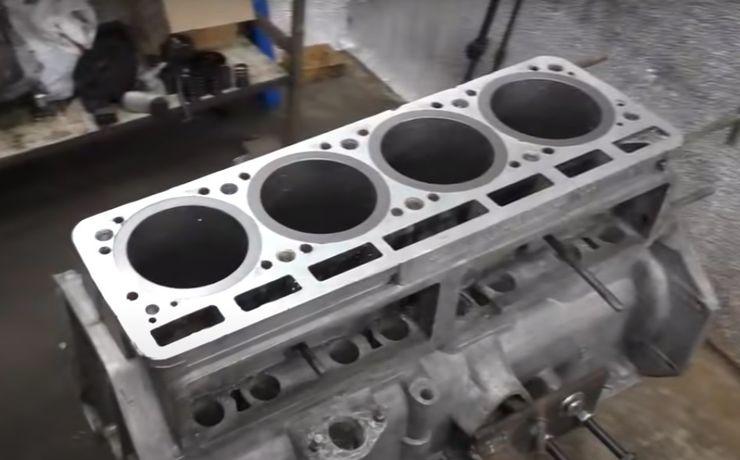
Do not forget about the trends of modern automotive industry - an increase in engine power while reducing its volume and weight. All this in combination increases the thermal load on the cooling system even more and forces automakers to create new coolants and tighten the requirements for them. That is why it is very important to know which specific antifreeze is right for your car.
Features of antifreezes can be considered on the example of the liquids of the German company Liqui Moly, supplied, including to Russia. So, the first type is hybrid antifreeze (G11 according to VW specification). This type of antifreeze is widespread and was used on the conveyors of BMW, Mercedes (until 2014), Chrysler, Toyota, AvtoVAZ. This type includes the product Kühlerfrostschutz KFS 11 with a service life of three years.
The second type is carboxylate antifreeze (G12+). This type includes Kühlerfrostschutz KFS 12+ with a complex inhibitor package. It is used for cooling engines of Chevrolet, Ford, Renault, Nissan, Suzuki brands. The product was created in 2006 and is compatible with previous generation antifreezes. Its service life has been extended to 5 years.
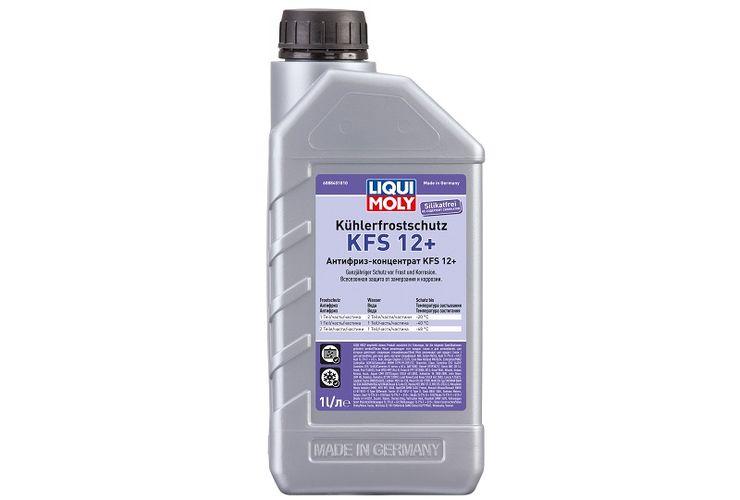
The third type is lobrid antifreeze, one of the advantages of which is an increased boiling point, which allows them to be used on modern heat-loaded engines, for example, Volkswagen cars since 2008 and Mercedes since 2014. They can also be used in Asian cars, subject to the mandatory condition of a complete replacement with flushing the system. Service life - 5 years.
The fourth type is lobrid antifreeze with the addition of glycerin. This type includes Kühlerfrostschutz KFS 13 antifreeze. This product is designed for the latest generations of VAG and Mercedes vehicles. With an additive package similar to G12 ++, part of the ethylene glycol was replaced with safe glycerin, which reduced the harm from accidental leaks. The advantage of G13 antifreezes is an almost unlimited service life if it is poured into a new car.
Particular attention should be paid to owners of Peugeot, Citroen and Toyota vehicles, where the PSA B71 5110 (G33) specification is required. For these machines, the Kühlerfrostschutz KFS 33 product is suitable. This antifreeze can only be mixed with G33 antifreeze or its analogues, and it needs to be changed every 6 years or after 120 thousand kilometers.

